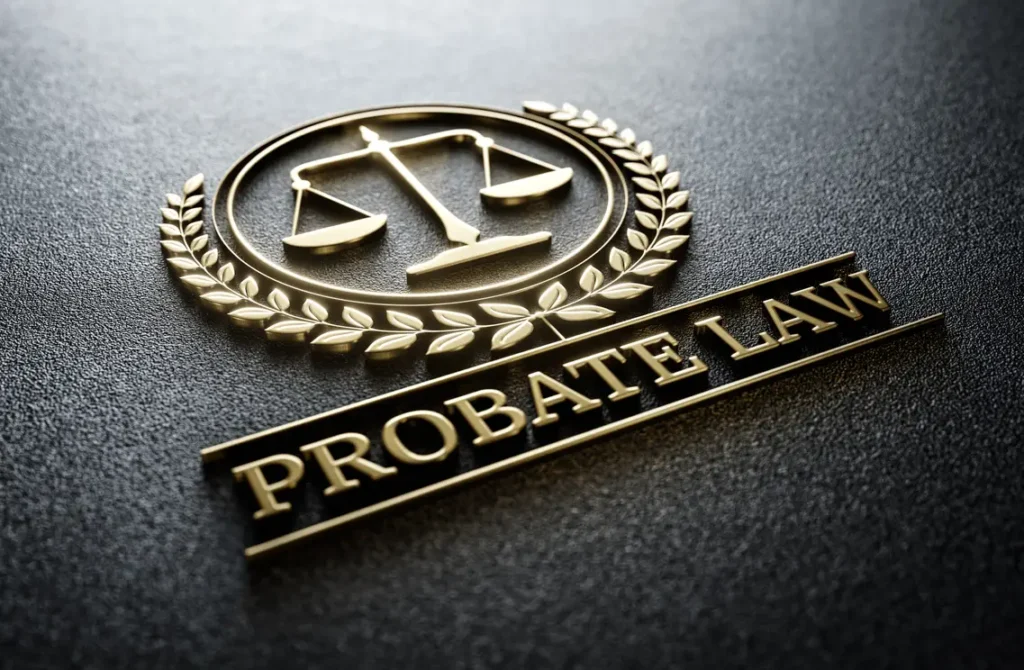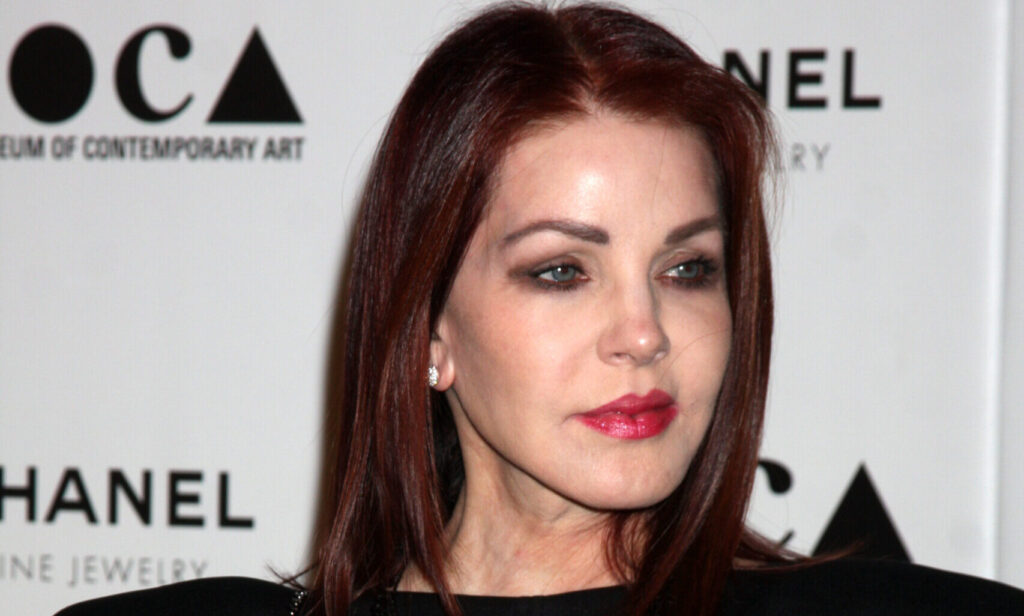A will that appears out of thin air demands scrutiny. Discover how a probate attorney can help assess the validity of a will.
When Anthony Hsieh passed away on November 27, 2020, his estate was initially assumed to be intestate (meaning he died without a will), and his father, Richard Hsieh, was appointed as the estate’s administrator.
In February 2025, however, an unexpected plot twist emerged: A document purported to be Tony Hsieh’s will, allegedly signed in 2015 by Hsieh and five witnesses, was discovered in Pakistan among the belongings of someone reportedly named “Pir Muhammad.”
Although attorneys Robert Armstrong and Mark Ferrario appear to have had no prior personal or professional connection to Hsieh, they are named as executors in the newly surfaced document that has been lodged with the Clark County District Court in Las Vegas for authentication.
According to the State Bar of Nevada, this is a standard probate step required for estates valued above $25,000 or containing real property — both of which almost certainly apply to Hsieh’s multimillion-dollar assets and nationwide real estate holdings.
No official will contest has been filed to challenge the document’s validity so far — and it’s unclear whether one ever will be. But Hsieh’s father, Richard, has expressed skepticism about the document’s authenticity and is investigating its origins and the circumstances surrounding its discovery.
Notably, the will includes a no-contest clause, which could place heirs’ inheritances at risk if they were to challenge the document. At present, only a hearing to address the will’s validity has been scheduled.
Under Nevada law, any will that meets the statutory requirements under NRS 133.040 is presumed valid unless proven otherwise.
For a will to be considered valid in Nevada, it must meet all the following requirements:
- It is in writing;
- It is signed by the testator (the will creator); and
- It is attested by at least two competent witnesses in the testator’s presence.
Whether this recently surfaced will satisfies these requirements remains uncertain. What is clear, however, is that if the will is upheld, it could upend years of estate administration under intestate succession laws — redirecting assets according to the will’s terms, transferring management authority from Richard Hsieh to the named executors and potentially diluting or even eliminating inheritances established under the previous administration.
Conversely, if the will is invalidated, the estate administration will continue under Nevada’s intestacy laws, supervised by Richard Hsieh as administrator.
While it may seem surprising that a person with hundreds of millions in assets could leave such ambiguity, issues like this are more common than you might expect. This saga underscores the importance of proper estate planning — or, if planning was incomplete, taking immediate steps to investigate any suspicious documents. Oddities in a will should never be dismissed as mistakes, since they may indicate that the document is not fully valid or authentic.
Assessing the legitimacy of a will can be complex for anyone without legal experience. A probate attorney can review the document, identify red flags and, if necessary, take steps to look into its origins, ensuring both the interests of the estate and beneficiaries are protected.
Who Is Anthony Hsieh?
Anthony “Tony” Hsieh was a renowned entrepreneur celebrated for his magnetic personality and innovative approach to business. He is best known as the CEO of Zappos, the online shoe and clothing retailer he helped grow into a multibillion-dollar company, widely admired for its exceptional customer service and unique corporate culture.
Beyond Zappos, Hsieh left a lasting impact through his investments in downtown Las Vegas, playing a pivotal role in its revitalization and helping shape its community and business landscape.
How Did Tony Hsieh Die?
Tony Hsieh tragically passed away on November 27, 2020, at age 46 as a result of complications from smoke inhalation sustained in a house fire at a friend’s home in New London, Connecticut.
The circumstances of the fire were unusual. Reports indicate that Hsieh locked himself in a shed attached to the home as the final blaze intensified. While investigators suggested that improperly discarded smoking materials may have sparked the fire and that Hsieh could have been intoxicated at the time, New London Fire Marshal Vernon Skau was unable to determine a definitive cause.
Hsieh’s sudden and premature death shocked the business and tech communities alike and deeply affected his many admirers, leaving a profound void in the entrepreneurial world.
Did Tony Hsieh Have Capacity Issues?
It is possible that Tony Hsieh lacked legal mental capacity not only at the time of his death but also in the years leading up to it. This speculation is based on statements from his estate attorneys since his passing, as well as court filings by family members documenting his extensive drug use.
According to friends, Hsieh reportedly used “as many as 50 cartridges of nitrous oxide a day, often in public or during ‘meetings’ with people,” court documents state. Additional filings reveal that his bedroom was “littered with hundreds of spent nitrous oxide cartridges.” These containers are commonly used to get high.
CBS News also reported that marijuana paraphernalia, liquor bottles and nitrous oxide cartridges were found at the scene of the fire where Hsieh tragically died.
In probate matters, capacity issues typically involve elderly individuals who have lost competence due to cognitive disorders like Alzheimer’s or simply old age, which can prevent them from understanding the nature and implications of legal documents they sign, such as wills.
While substance use is a less common cause of incapacity in probate cases, chronic inebriation can similarly impair judgment and decision-making. In Hsieh’s case, it could impact whether his purported will is ultimately invalidated.
“Although there’s evidence of Tony’s drug use, it’s unclear whether this alone could invalidate his will,” says Roee Kaufman, a partner at Keystone. “Proving he didn’t understand he was creating a will could be challenging, especially given his success managing multiple businesses and investments. Without reviewing all evidence, it’s hard to make a definitive call.”
What Was Anthony Hsieh’s Net Worth at Death?
American tech tycoon Tony Hsieh was estimated to be worth around $840 million at the time of his death. Most of his wealth came from his 21-year involvement with Zappos, which culminated in the company’s sale to Amazon in an all-stock deal. The deal reportedly earned 10 million in Amazon shares, valued at a staggering $1.2 billion on the day of the sale.
In addition to his Zappos earnings, Hsieh reportedly made $214 million through his personal stake in the company and an additional $100 to $200 million from his stake in the investment firm he co-founded, Venture Frogs, which invested in tech companies like OpenTable, Ask Jeeves and, most importantly, Zappos, according to Celebrity Net Worth.
Hsieh also owned numerous real estate properties across Nevada and Park City, Utah, which his family is currently attempting to sell. These holdings included the Zappos headquarters, a building that formerly housed Las Vegas City Hall.
Why Is Tony Hsieh’s Will Suspicious?
While Tony Hsieh’s past substance use raises questions about whether he had the capacity to create a will, that’s just the tip of the iceberg — numerous other factors cast doubt on the validity and authenticity of the document.
We’ll explore these issues in the sections that follow, but let’s start by reviewing what we know so far about the will.
- The will allocates more than $50 million and multiple Las Vegas real properties into unnamed trusts with beneficiaries that have yet to be identified (The Wall Street Journal).
- The will makes several charitable donations, including to Harvard University, Hsieh’s alma mater, in the sum of $3 million; $500,000 to the American Red Cross; $250,000 to the Gates Foundation, $250,000 to the Howard G. Buffet Foundation; and $250,000 to the Ford Foundation.
- The will contains an exclusive possession cause stipulating only the person named — Pir Muhammad — has the sole right to keep the will.
- The will contains a no-contest clause stipulating that any family member that contests the will risks forfeiting their inheritance.
- The will names attorneys Robert Armstrong and Mark Ferrario as co-executors of Hsieh’s estate, even though the duo claim they never had any prior involvement with Hsieh or his estate planning.
- The will has been filed with the Clark County District Court in Las Vegas for authentication.
- A hearing has been scheduled to assess the validity of the will.
1. The Will Surfaced Long After Tony Hsieh’s Death
A will purportedly signed by Tony Hsieh and five witnesses in 2015 surfaced in 2025 — nearly five years after the late entrepreneur’s untimely death. While this isn’t necessarily unusual, it does beg the question: Why did it take so long for the document to come to light?
“While a will appearing years after a person’s death isn’t automatically invalid or indicative of wrongdoing, it certainly raises more red flags than one produced immediately after death,” says Shawn Kerendian, Keystone’s managing partner. “Without examining the document itself, it’s difficult to draw conclusions about its authenticity or who might stand to benefit from its sudden emergence.”
2. There is Nothing Linking the Person Who Found the Will to Tony Hsieh
In February 2025, Tony Hsieh’s will was reportedly discovered in Pakistan by a man named Kashif Singh, who claims to have found it among the belongings of his late grandfather, Pir Muhammad. He subsequently mailed it to a Las Vegas courthouse. Singh has stated that Muhammad suffered from Alzheimer’s toward the end of his life and was allegedly unaware of Hsieh’s death.
Although Singh has since provided a death certificate confirming Muhammad’s passing, no information about the decedent’s background or his connection to Hsieh has been made public, adding to the confusion surrounding the will’s origin.
“How a will is discovered is extremely important,” notes Kaufman. “It can affect the document’s authenticity, expose potential fraud and influence whether it is admitted to probate.”
3. The People Named as Executors Had No Prior Involvement with Tony Hsieh or His Estate Planning
The co-executors named in the document purporting to be Tony Hsieh’s will — attorneys Robert Armstrong and Mark Ferrario — have consistently stated that they had no prior relationship with Hsieh. If accurate, it raises a natural question: Why would they be appointed as co-executors of his estate?
According to the Las Vegas Review-Journal, Armstrong is a trust and estates attorney with Nevada law firm McDonald Carano, while Ferrario is a real estate litigator with global firm Greenberg Traurig.
“It’s reasonable to question unexpected appointments like these, especially since both lawyers say they didn’t know Tony,” explains Shawn Kerendian. “However, that doesn’t automatically indicate wrongdoing. Tony may have intentionally chosen professionals he deemed most qualified to handle his estate.”
This reasoning is plausible. Armstrong is Las Vegas-based (the same city where Zappos was headquartered and where Hsieh owned multiple properties) and is nationally recognized for representing high-net-worth clients. Ferrario is also based in Las Vegas and specializes in real estate litigation, which aligns with Hsieh’s substantial property holdings. Their expertise could explain why Hsieh may have selected them to serve as co-executors.
4. The Will Has Atypical Elements
While there isn’t a universal standard for wills, the purported will of Tony Hsieh contains several oddities that are difficult for skeptics to ignore.
For example, the document includes an exclusive possession clause granting Pir Muhammad the sole right to keep the will. This raises questions because not only is Muhammad unknown to those familiar with Hsieh, but his connection to Hsieh is unclear, he was located in Pakistan and reportedly suffered from Alzheimer’s.
The document also contains unusual provisions, such as allocations to unnamed trusts and language that is vague or awkwardly worded.
Finally, the will includes a no-contest clause. While such clauses do not prevent challenges outright, they can threaten the inheritance of anyone contesting the document. Even so, no-contest clauses have become harder to enforce in recent years.
“While no-contest clauses are common in wills and trusts to prevent frivolous challenges, the inclusion of one in Tony’s will seems unusually convenient,” notes Kaufman. “If someone were attempting to advance an invalid or incomplete will for personal gain, a no-contest clause could discourage contests, making it easier for a bad actor to carry out their plan without consequence.”
5. There is No Corroborating Documentation
Efforts to verify Tony Hsieh’s will have so far been inconclusive due to a lack of corroborating documentation — such as witness statements, affidavits or prior wills — that could help streamline the authentication process.
In Hsieh’s case, the document ostensibly includes his signature along with those of five witnesses. That said, the presence of signatures alone doesn’t guarantee the will’s validity. Signatures can be forged, and questions may arise about whether Hsieh had the mental capacity to execute the document, whether he was under undue influence or whether he later revoked it. In other words, even if the will meets Nevada’s basic statutory requirements, it could still be challenged and ultimately found invalid if evidence suggests it doesn’t reflect Hsieh’s true intent.
“Corroborating documentation isn’t always required to validate a will, especially when its authenticity is uncontested or obvious,” Kerendian notes. “However, because this will surfaced years after Tony’s death and was found in the possession of an unexpected individual in a surprising location, additional evidence may be necessary to ensure the document isn’t fraudulent.”
6. The Will's Other Signers Are Unreachable
Six individuals — Tony Hsieh and five “disinterested witnesses” — allegedly signed the purported will, but attorneys for Hsieh’s father, Richard, have so far been unable to locate or contact any of them. The term disinterested indicates that none of these witnesses were intended to receive anything from the Tony Hsieh estate, potentially lending credibility to their impartiality.
Meanwhile, attorneys Armstrong and Ferrario argue that the will is “self-proving,” suggesting it contains a sworn statement that attests to its own validity, which in their view makes it unnecessary to track down the witnesses. They maintain that as long as the document satisfies Nevada’s statutory requirements for a valid will, it should be presumed authentic.
Still, questions remain about whether those statutory requirements were actually met. Attorneys representing Hsieh’s estate argue that verifying the witnesses’ identities is essential to confirm the will’s legitimacy.
“Just because we have names on a document doesn’t mean we have valid names,” said Dana Goldsmith, an attorney for Richard Hsieh. “They could be Abraham Lincoln, George Washington, and Donald Trump. The document wouldn’t be valid because they didn’t live at the same time.”
Will Tony Hsieh’s Will Hold Up in Court?
As of October 2025, it remains uncertain whether the purported will of Tony Hsieh will be authenticated by a Nevada probate court. Too little is known about the document as far as its origin, its witnesses or even how it came to light to make any definitive conclusions. Multiple factors could sway the outcome, with some supporting the will’s legitimacy and others casting serious doubt.
If Keystone were to predict what comes next, it’s likely that this will dispute will continue to be litigated for some time. Should the probate court deem the will valid at the upcoming hearing, Hsieh’s father and his legal team may formally contest it, giving them the opportunity to scrutinize its authenticity, witnesses and contents in greater detail. Conversely, if the court rejects the will, attorneys Armstrong and Ferrario could appeal the decision and present additional evidence to support its validity.
“As probate litigators, we often see cases where uncertainty fuels prolonged conflict,” says Kerendian. “Whether this will is authentic or not, what’s clear is that transparency and due process are essential in ensuring Tony Hsieh’s true intentions are honored.”
The Tony Hsieh Will Controversy — Key Lessons to Learn
The unfolding drama surrounding Tony Hsieh’s purported will highlights the critical importance of both careful estate planning and taking the proper steps after death.
From questions about Hsieh’s mental capacity and the will’s authenticity to confusion surrounding its delayed discovery and the surprising appointment of unfamiliar executors, this case illustrates how even the most well-meaning individuals can unintentionally leave behind a trail of complex legal challenges.
Capacity Issues Can Complicate Probate
When there’s evidence a person may have lacked mental capacity when creating their will, the document’s validity can be called into question — as is happening in Tony Hsieh’s case.
For a will to be legally valid, it must be signed by a testator who understands the nature of the document they are signing, the nature of their assets, who their heirs or beneficiaries are and the consequences of their decisions.
That’s why it’s essential to draft or update your estate plan while you’re still of sound mind — doing so helps ensure your wishes aren’t derailed later by claims of incapacity. Likewise, if a loved one shows signs of cognitive decline, proactively securing a declaration of incapacity or other medical documentation from their physicians can make it much easier to challenge or invalidate documents signed under questionable circumstances down the road.
While Tony Hsieh was widely regarded as a visionary entrepreneur, reports of his substance use and erratic behavior in the months preceding his death have raised questions about whether he had the necessary capacity when the will was allegedly created.
“Even if a will satisfies statutory requirements, it may still be proven invalid if evidence shows the decedent was incapacitated — even temporarily — when creating, amending or revoking the document,” Kaufman explains.
State Laws Determine Who Inherits When No Valid Will Exists
When someone dies without a will, or if a court determines their will is invalid, state intestacy laws dictate who inherits their estate.
Under these laws, surviving spouses and children usually inherit first. If the decedent had neither, as in Tony Hsieh’s case, assets likely will pass to surviving parents or siblings.
While some people may be comfortable with their estate following this default order, others have specific wishes — such as leaving assets to friends, charities or business partners — that intestacy laws won’t honor. In short, unless you’re content to let state statutes decide the fate of your estate, creating a valid will is essential.
Informal Wills and Documents Frequently Trigger Legal Disputes
In Tony Hsieh’s home in Park City, Utah, investigators discovered walls covered in sticky notes and handwritten papers, many outlining financial promises, business ideas and obligations.
While these writings reflected Hsieh’s unconventional mind, they’ve become a nightmare for his estate, which is burdened with determining which of these notes represent legitimate liabilities and which were simply musings.
Ordinarily, a well-drafted will would account for outstanding liabilities, ensuring that valid debts are settled efficiently without duplication or oversight. But in Hsieh’s case, the existence of a will wasn’t even known until years after his death — and even now, its authenticity remains in question.
“When informal writings or improperly executed wills come into play, estate administration can grind to a halt,” Kerendian laments. “Beneficiaries are left waiting for their inheritances while estate funds are drained by litigation and administrative costs.”
The best way to prevent this type of legal chaos is to work with a qualified estate planning attorney, who can help ensure your will is formal, legally valid and crystal clear about your intentions.
Clear Executor and Trustee Appointments Prevent Confusion
If the will in question was truly created by Tony Hsieh, it’s entirely possible he had specific reasons for naming two attorneys he’d never personally met as co-executors of his estate. Still, one of the main reasons his purported will has faced such intense scrutiny is that there’s no known connection between Hsieh and these individuals.
“While there’s no legal requirement to appoint someone close to you as executor, naming trusted individuals — especially those with whom you have a personal relationship — can help avoid unnecessary skepticism and delays,” says Kaufman. “At the very least, if you do appoint someone you’re not personally close to, it’s wise to notify them and others of your decision ahead of time to prevent confusion later.”
In Hsieh’s case, his decision to name two lawyers who publicly state they never met him has only amplified doubts about the will’s authenticity, underscoring that in estate planning, transparency can be just as important as legal formality.
Dealing with a suspicious will?
If something about a decedent’s will or trust doesn’t feel right, there’s a good chance your instincts are correct. Still, many inconsistencies are subtle and easy to overlook without a trained legal eye. That’s where Keystone’s experienced probate attorneys come in. Will and trust contests are what we do best — our team can investigate questionable documents, uncover the truth and take swift action to contest or defend them in court.
Whether you’re a beneficiary, executor or trustee, having a skilled probate attorney by your side can make all the difference when navigating complex estate or trust matters. Keep in mind that the time frame to contest a will or trust is short — waiting too long could forfeit your right to act.
If you suspect something’s off, don’t wait. Contact Keystone today to find out how our attorneys can help protect your rights and ensure the decedent’s true intentions are honored.








